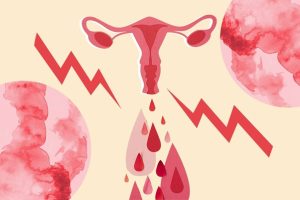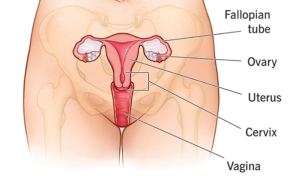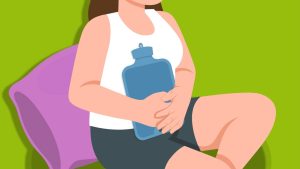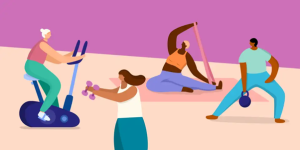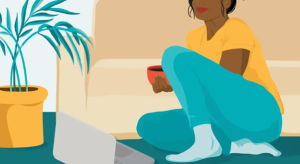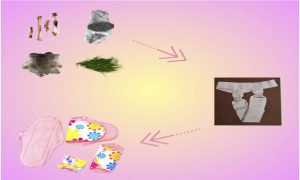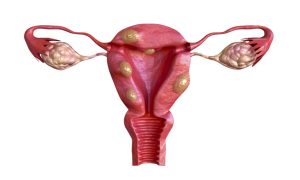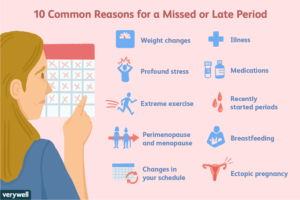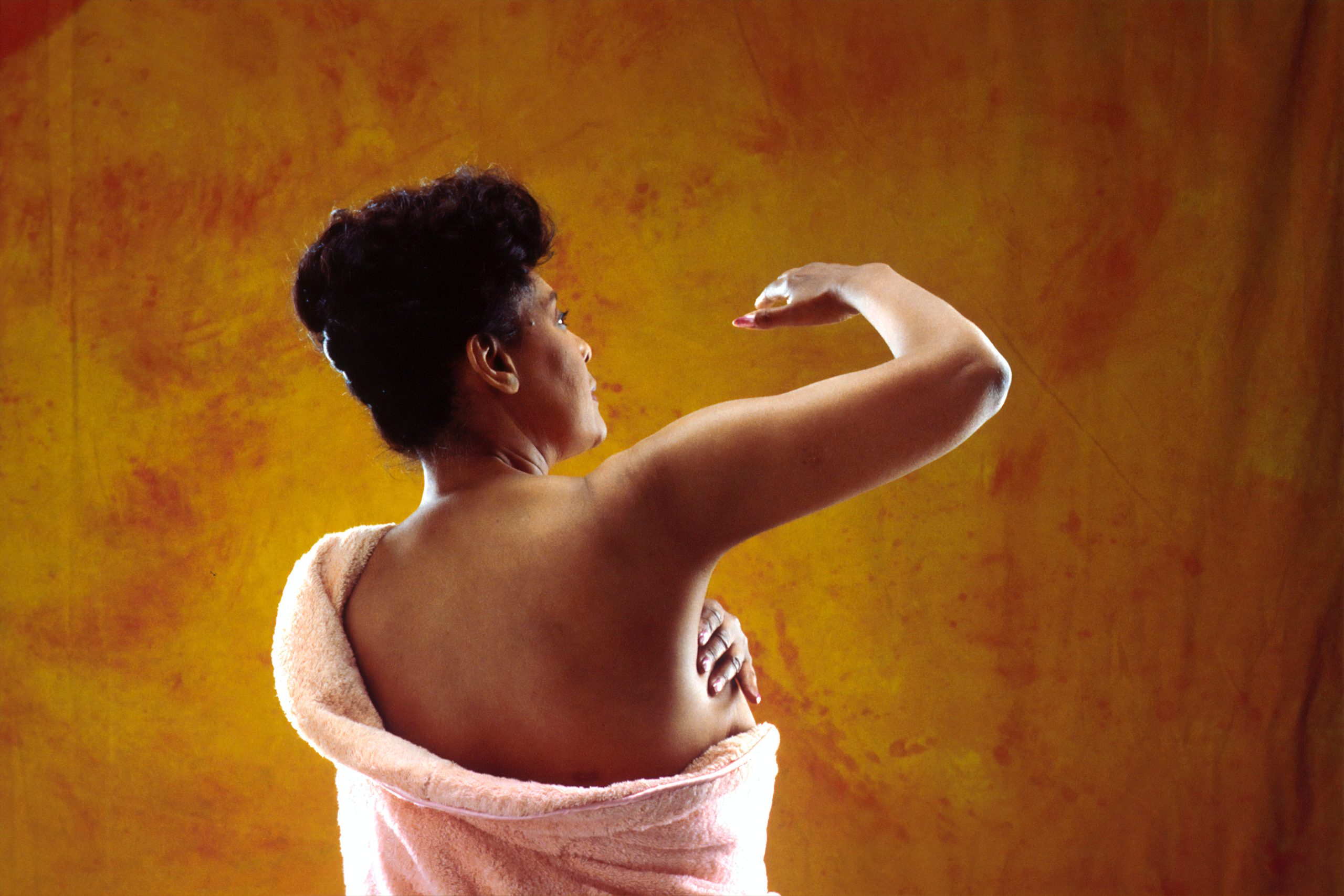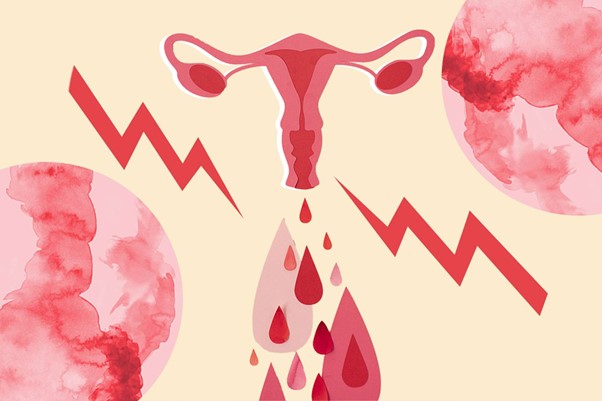
Understanding the Menstrual Cycle
Whether you’re just starting or just curious to learn more, understanding the four phases of your menstrual cycle can help you distinguish and navigate the ups and downs of your menstrual cycle with confidence and ease. So, let’s dive in and explore what happens during each phase of your menstrual cycle, and discover some tips on how to take care of yourself along the way. Trust us, your body is doing some incredible stuff!
1. Menstrual Phase:
Duration: 3-7 days
What Happens:
This is your period. During this time, your uterine lining (endometrium) sheds and leaves the body through the vagina as menstrual blood.
Hormone levels (estrogen and progesterone) are at their lowest.
What You Might Feel:
Physical: Cramps, lower back pain, bloating, are very common at this stage, you may also feel – or have felt breast tenderness, fatigue, headaches in the build up to this phase.
Emotional: Mood swings, irritability, sadness, or feeling low/depressed.
What Can You Do?
Make sure to take plenty of rest and self-care during this phase to feel better. This may involve taking more naps/longer nights sleep or reading and watching your favourite books and tv shows. Heat therapy is commonly advised to help with cramps and pain – make yourself a hot drink or fill up a hot water bottle to sooth that pain! Some gentle stretches and exercises may help to relieve those painful cramps.
You may also want to take this time to hydrate and nourish your body to relieve the stress on your body during future phases. Drink plenty of water and eat iron-rich foods like beans and meat to replenish the iron and water you are losing in you’re period blood.
2. Follicular Phase:
Duration: About 10-14 days (starts on the first day of menstruation and ends with ovulation).
What Happens:
Following your period, your body prepares for ovulation. During this time, hormones like estrogen rise, prompting the uterine lining to thicken again. The pituitary gland in your brain will also release the Follicle Stimulating hormone ‘FSH’ to stimulate your ovaries to release an egg, which will begin to mature.
What You Might Feel:
Physical: Expect a gradual increase in energy and improved well-being, depending on how well you rested and cared for your body during your period, you make see different rates of recovery in this period. You will also notice a more symmetrical face and clearer skin – get yourself back into the swing of things, pretty woman!
Emotional: Improved mood, increased motivation, and higher levels of optimism are expected with higher levels of Estrogen.
What Can You Do?
Take advantage of your energy boost with regular workouts—try cardio, strength training, or your favourite sport. You can also use this opportunity to engage in social activities and hobbies that make you feel good. If you are working or studying, this increase in energy will make you smarter, more focused and confident – so take part in those class discussions or projects!
3.Ovulation phase:
Duration: 1-2 days (around day 14 of a 28-day cycle)
What Happens:
A surge in luteinizing hormone (LH) triggers the release of the mature egg from the ovary into the fallopian tube. Around the middle of the cycle, usually between days 12-16, an egg is released from the ovary and will begin making its way through the fallopian tube into the uterus. This is the most fertile time in the cycle, where you are most likely to get pregnant.
What You Might Feel:
Physical: Mild twinges or cramping on one side of the pelvis (mittelschmerz) can happen when releasing and egg. You may also see more discharge in your underwear that looks clear and stretchy. With your body at its most fertile, don’t be ashamed to experience a heightened libido!
Emotional: Estrogen levels will peak just before this time, so you can expect to feel your most social, confident, and attractive!
What Can You Do?
Embrace high-energy workouts like running, or dancing and spend lots of time with your friends or trying new activities. Don’t forget to keep yourself hydrated and nourished to support your peak energy!
4. Luteal Phase:
Duration: About 14 days (from ovulation to the start of the next period)
What Happens:
After ovulation, your body prepares for a potential pregnancy. Progesterone levels will increase to support the egg’s growth, however, If the egg isn’t fertilized, these hormone levels will drop, leading to the shedding of the uterine lining and the start of menstruation.
What You Might Feel:
Physical: Bloating, breast tenderness and fatigue are very common. Changes in appetite, and sometimes constipation or diarrhea may also be experienced, along with the feeling of weight and body shape changes.
Emotional: Premenstrual syndrome (PMS) symptoms such as irritability, mood swings, anxiety, and depression can occur. It’s time to start resting again in anticipation of your period!
What Can You Do?
Treat yourself with warm baths, massages, or your favorite relaxing activities to care for your body. Try stress-managing techniques like meditation and deep breathing to manage your changing emotions and keep up the healthy eating and prioritized sleep.
It’s important to note that menstrual cycles can vary in length and regularity. Factors such as stress, diet, exercise, and underlying health conditions can influence the cycle. Tracking your menstrual cycle by using a calendar or a mobile app can help you anticipate your body’s changes. Reach out to Kosmotive’s helpline service and online health advice by visiting the KosmoHealth section!
Understanding the menstrual cycle helps you stay in tune with, and regulate, your body. By familiarizing yourself with its phases, hormones, and variations, you can better manage your reproductive health and know what to expect each month.
Sources:


